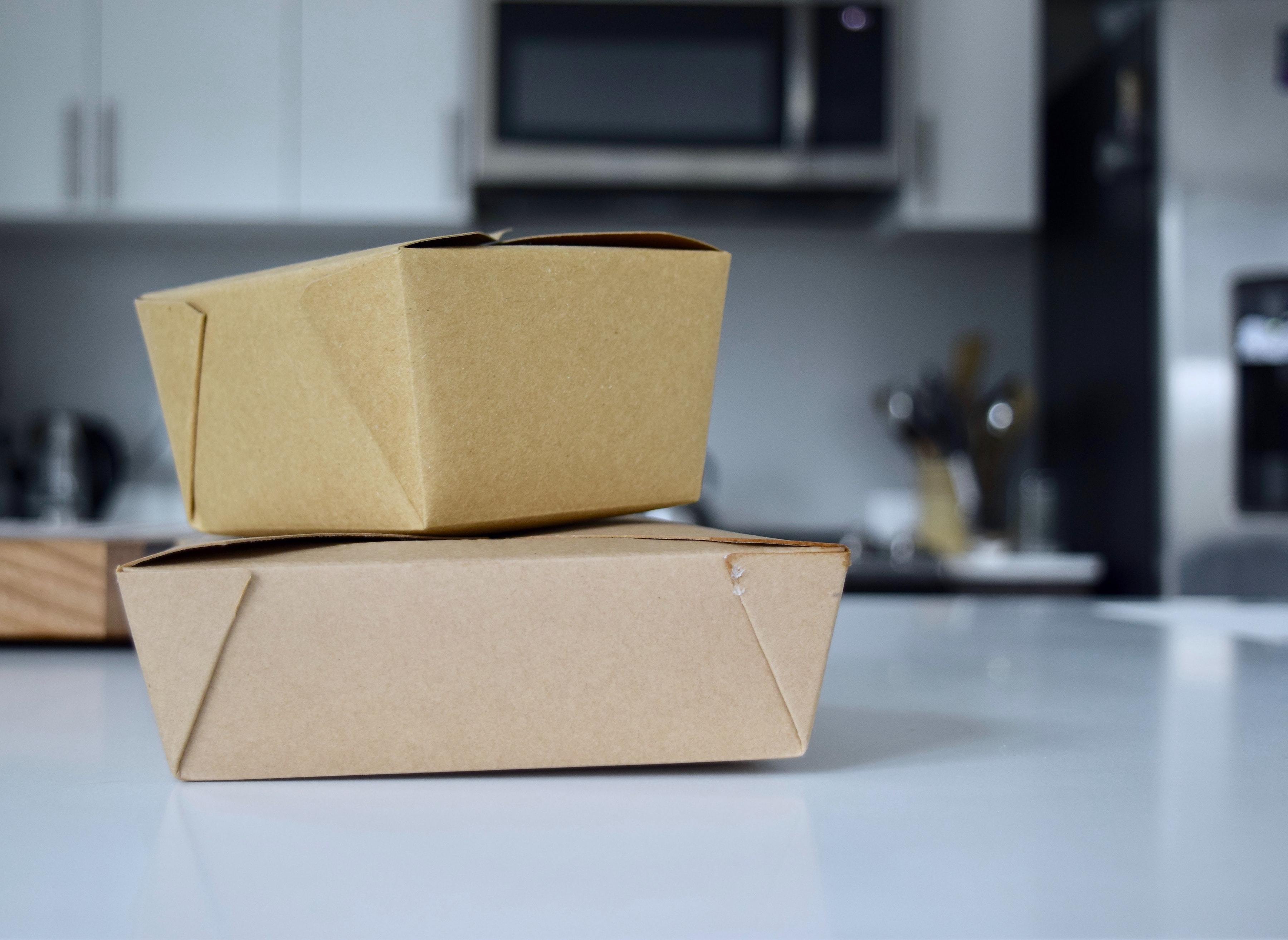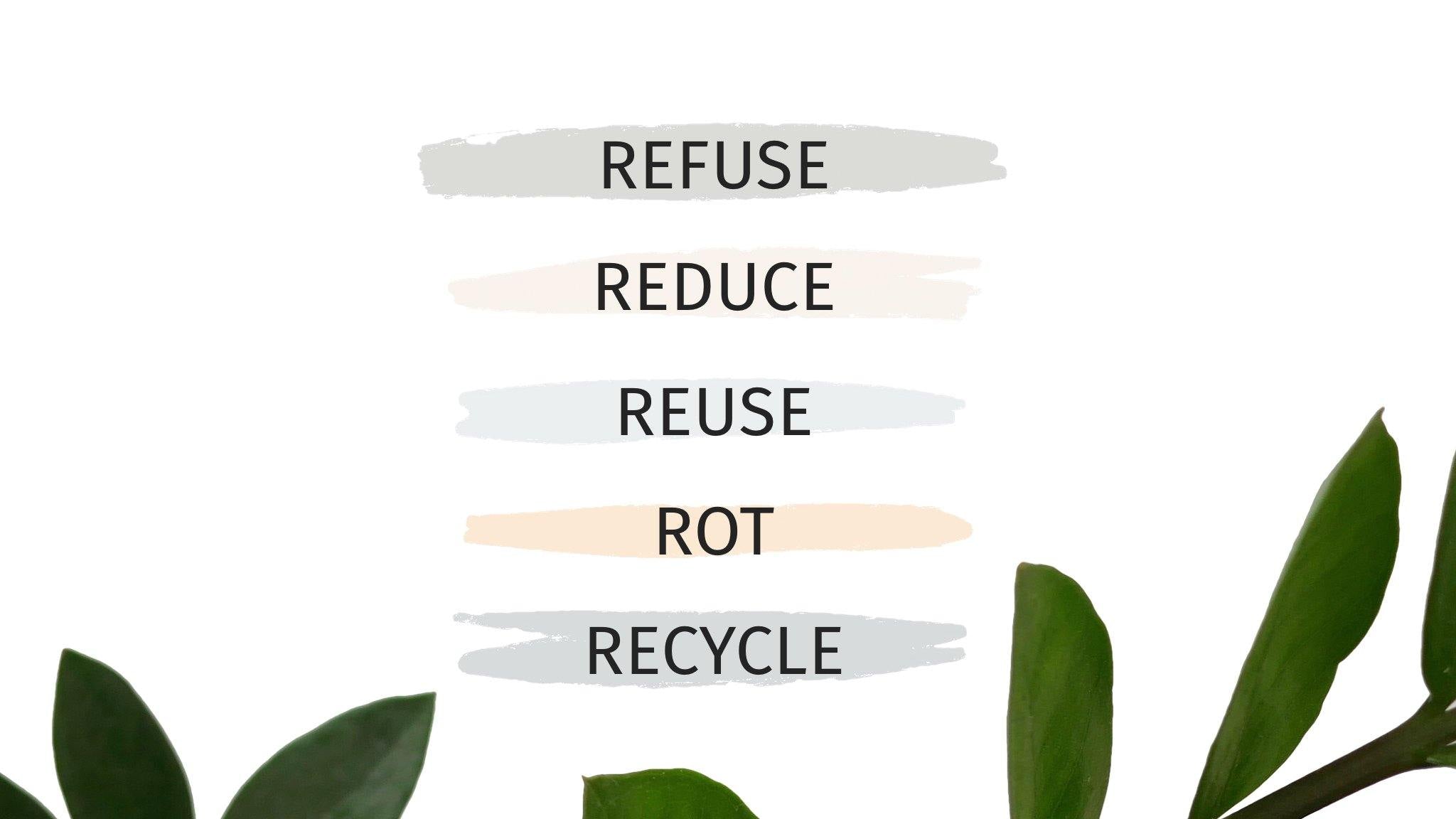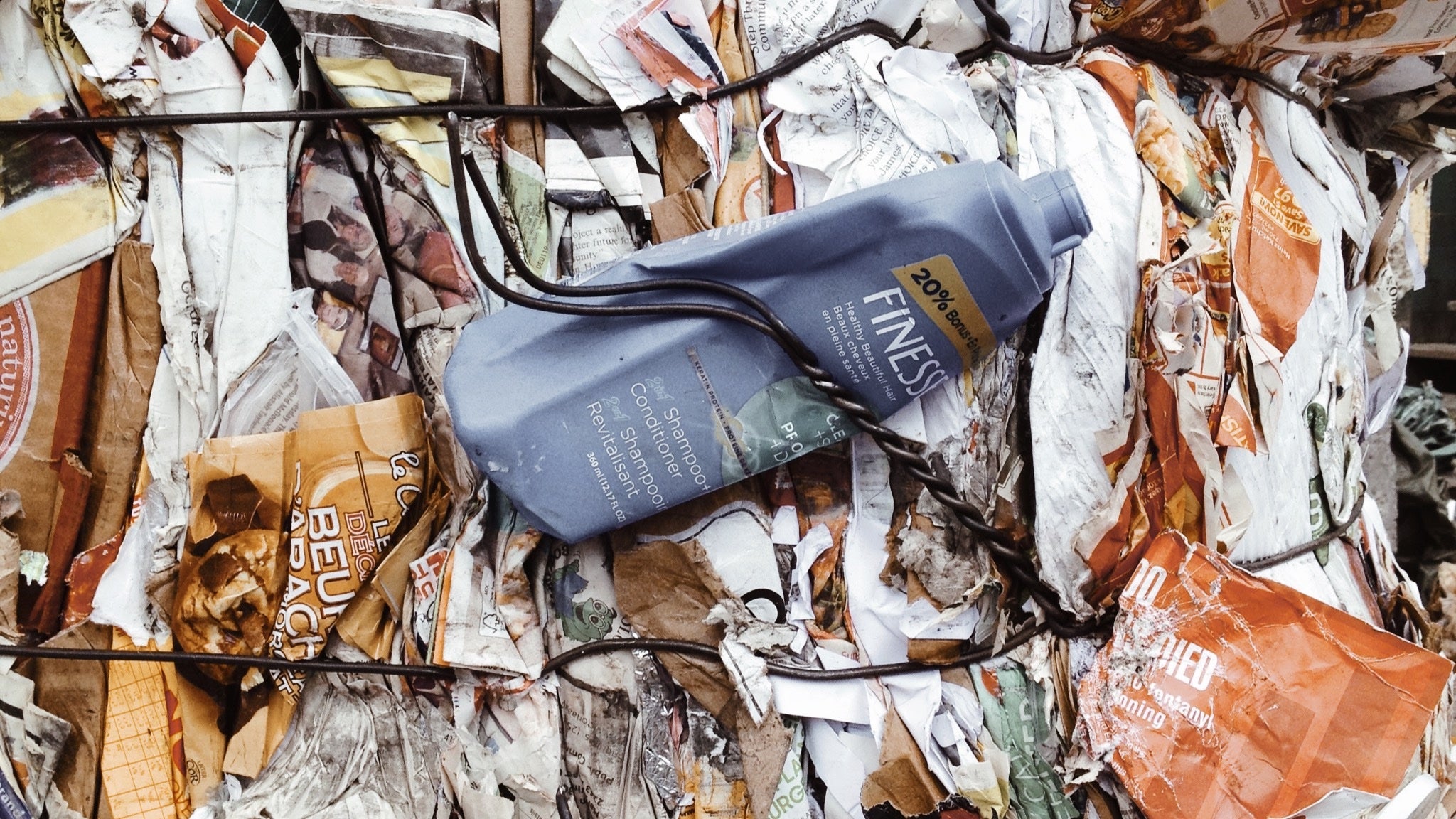
5 Ways to Live Low Waste During a Global Pandemic
It's no secret that COVID-19 has changed things in regards to reusables. Many grocery stores aren’t bagging groceries in reusable bags or offering bulk options. Restaurants and coffee shops are using takeout containers as their go-to, and disposable masks are showing up littered all over. The plastics industry didn't miss a beat and began lobbying against reusables almost immediately, convincing businesses and buyers that they were unsafe. What began with good intentions for our safety, wasn't completely based on Science. Did you know that 125 experts across the globe came together to confirm that reusables are still safe as long as they're cleaned regularly?
While we may not be able to convince businesses of that just yet, there are still a few things we can do to reduce some of waste being created right now.
1. Reduce, Refuse, Ask for More Sustainable Options, and BYO at Restaurants.
To-go containers have undoubtedly become one of the main frustrations for those who are trying to reduce waste but who also want to support their local restaurants at this time. We've talked to so many people who don't know what to do with the containers they've collected, but here are a few solutions for future take-out trips.
• Reduce- Try ordering more food at once to cover more than one meal.
• Refuse- Let the restaurant know that you don't need a bag, utensils or condiments. It's much easier to do this if you order to-go while in person or over the phone rather than via delivery apps. I try to order from restaurants that I know provide their food in paper or plastic containers that we can compost. It hasn't been easy, and we haven't been perfect, but I use the opportunity to ask businesses to consider other sustainable options.
• Ask About Compostables- Talk to your favorite restaurants and cafes about how much you love to support them, but respectfully share your concern about the waste that is accruing during this global moment. Ask if they would consider more eco-friendly options like paper and compostable plastics. Compost Nashville is a great local resource for this! They have helped many restaurants in Nashville move towards compostables. (Remember, "recyclable" to-go containers have a really low recycling rate [or none at all], so paper or compostables may be a restaurant's best option).
• BYO- If your local coffee shop won’t accept your coffee tumbler for your to-go order, try ordering your drink “for here”, and then simply pour the coffee from the cafe's glass/mug into your own tumbler!
The more of us that request these kind of options, the more restaurants will be compelled to really think about the environmental impact from the amount of to-go waste that is happening right now.
2. Bag Your Own Groceries.
A lot of grocery stores won’t bag your groceries in your reusable bags like they would pre-pandemic. A simple solution to this is to keep your bags in your cart, and let the cashier know that you'll be placing your items in your own bags.
3. Rethink How You Buy Food.
While sheltering in place has presented difficult challenges for many, it also provides an opportunity to learn some new skills in the kitchen. Cooking at home is one of the best ways to avoid waste (and save money!).
There are some great places out there where you can find some bulk foods in more sustainable packaging. Some of my favorites are:
- Imperfect Foods- food that isn’t aesthetically pleasing is more likely to be thrown away by major grocers, even if they’re just as delicious! People will see these foods and think their taste or quality has been compromised because they’re not the perfect shape. But that’s just not true. And Imperfect Foods is working to change that.
- Azure- I have yet to try the food products from Azure, but I love their overall values! I called the company to confirm that their dry foods come in paper packaging that can be composted. Some have a composable plastic lining and others are just paper.
- Sun and Swell- All the food sold here is organic and plant based. But I especially love that their products come in 100% compostable packaging.
- Turnip Truck- Local to Nashville (or your local bulk-goods store). They’re still allowing you to bring in your own containers for bulk food and you can bag your own groceries. If you’re not local to Nashville, call around and find a local health food store that is still allowing this or utilize your local farmer’s market instead of a traditional grocery store.
- Farmers Markets- My husband is the person in our house who makes this happen every week. Supporting local food benefits the environment in so many ways that a lot of people don't often consider: Less food-travel miles, healthier soil, supporting your local economy, etc.
And while we’re on the topic of food, take a closer look at how much food you throw away each day and week. A study funded by the USDA found that U.S. consumers wasted about a pound of food per day from 2007-2014. You can drastically reduce the amount of food waste in your own life by:
- Buying less food but more fresh food
- Shopping your fridge and pantry before heading to the grocery store
- Eating your leftovers
- Freezing food on the verge of spoiling for later use
And don’t forget to compost your food scraps!
4. Rent Before You Buy.
Before you go out and buy something new that you may only end up using once or twice, why not consider renting it? Ask your friends or neighbors to borrow what you need, or use a rental marketplace like Ruckify.
5. Buy Used.
When renting won’t do, buy used before you buy new. I've been super busy with the shop lately, so I've been saving time by finding used goods online. Some of my favorite places to buy secondhand or refurbished are:
- Ebay
- Facebook Marketplace
- Poshmark and Kidizen for clothes( Kidizen is 100% my FAVORITE used kids clothing site)
- Amazon Warehouse
- Swappa and Mac of All Trades for electronics
Just because we’re in the middle of a global pandemic doesn’t mean we have to go straight to disposable everything. You can bring your own cups and bags, buy your food in bulk, rent before you buy, and buy used when you need to.
What else are you doing to reduce your waste in this season? I’d love to know—leave a comment below!



1 comment
This article is great. I need to find a list of compostable-packaging restaurants or be better about calling them beforehand!
Something I’ve personally done is a made a commitment to not buy anything from Amazon (unless it’s a gift on someone’s wish list). It’s not as convenient, of course, but it changes your mindset from “I need this immediately” to “Do I really need this if I’m not willing to wait a few days to get it?” Reducing has been a huge part of this for me, because so often we buy something that we “purge” a year later.
Whitney Gutgsell
Leave a comment
This site is protected by hCaptcha and the hCaptcha Privacy Policy and Terms of Service apply.